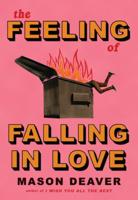Publisher's Synopsis
Excerpt from The Armchair Esquire
Faulkner, all the men I have mentioned contributed to Esquire at one time or another. Some Of them made many contributions, and, I am sure, were grateful for the existence, in a world of earnest, insolvent little magazines, of a magazine that paid cash. It was never the purpose Of the magazine to represent American literature according to some comprehensive scheme; the editors sought to find contributions that, they liked and hoped the readers would like. Yet it is interesting to notice how Often, especially in its first half-dozen years and again in recent years, contributions to Esquire have belonged in the literary mainstream. Take the case of John Dos Passos. Disillusioned by the First World War, he began asking himself, even in the prosperous twenties, whether fundamental economic and social changes were not needed In America, and when the depression began, he was one of the first American writers to ask, Why not communism? Never firmly committed to the communist cause, and as much a pioneer in disillusionment as he had been in involvement, Dos Passos nevertheless strongly influenced the intellectuals who moved leftward in the thirties. The Big Money, the third Of the novels that compose came out of a mood somewhere between sympathy and disenchantment, but it is sternly critical of capitalist economics and especially capitalist culture. The story published here, The Celebrity, is a considerably altered version Of an episode in that novel. Its theme is fraud, a kind of accidental, aimless fraud, a fraud really forced upon rather than chosen by the young man from the Sticks, and exactly this kind of fraud is central in The Big Money. About the Publisher Forgotten Books publishes hundreds of thousands of rare and classic books. Find more at www.forgottenbooks.com This book is a reproduction of an important historical work. Forgotten Books uses state-of-the-art technology to digitally reconstruct the work, preserving the original format whilst repairing imperfections present in the aged copy. In rare cases, an imperfection in the original, such as a blemish or missing page, may be replicated in our edition. We do, however, repair the vast majority of imperfections successfully; any imperfections that remain are intentionally left to preserve the state of such historical works.









